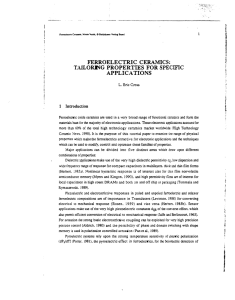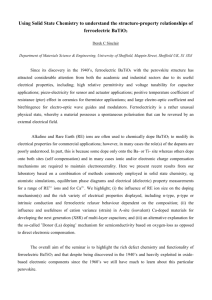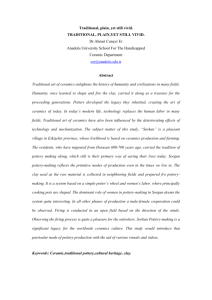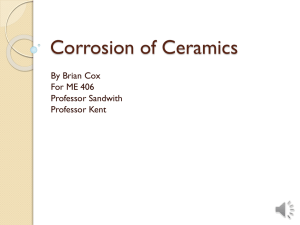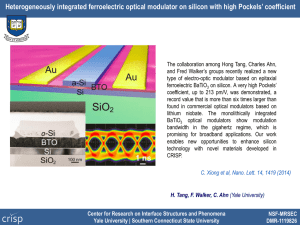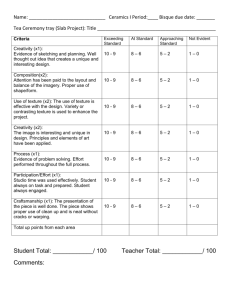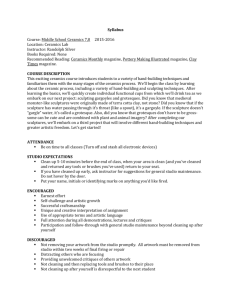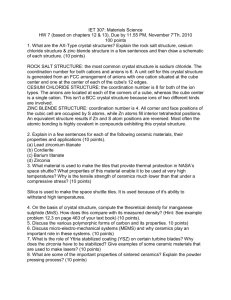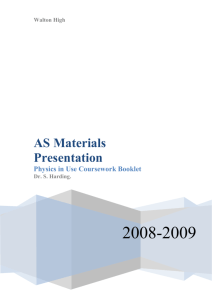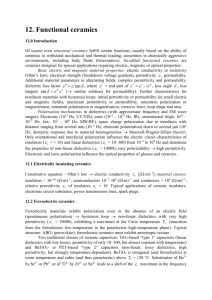UV-visible Spectra and Conductive Property of Mn
advertisement
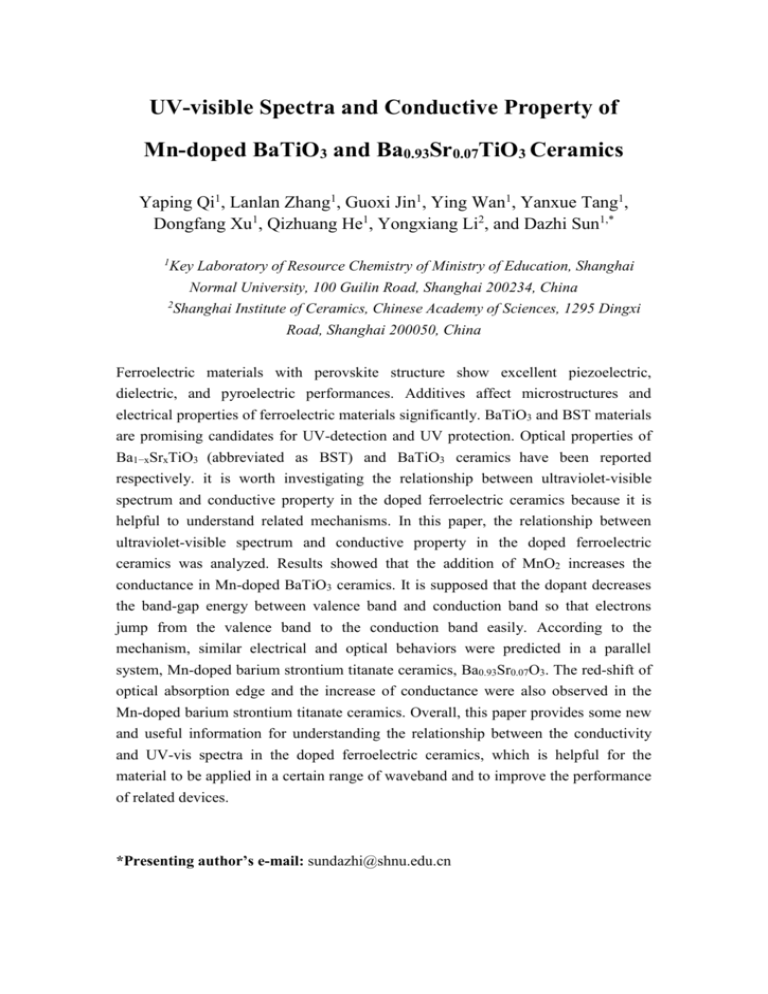
UV-visible Spectra and Conductive Property of Mn-doped BaTiO3 and Ba0.93Sr0.07TiO3 Ceramics Yaping Qi1, Lanlan Zhang1, Guoxi Jin1, Ying Wan1, Yanxue Tang1, Dongfang Xu1, Qizhuang He1, Yongxiang Li2, and Dazhi Sun1,* 1 Key Laboratory of Resource Chemistry of Ministry of Education, Shanghai Normal University, 100 Guilin Road, Shanghai 200234, China 2 Shanghai Institute of Ceramics, Chinese Academy of Sciences, 1295 Dingxi Road, Shanghai 200050, China Ferroelectric materials with perovskite structure show excellent piezoelectric, dielectric, and pyroelectric performances. Additives affect microstructures and electrical properties of ferroelectric materials significantly. BaTiO3 and BST materials are promising candidates for UV-detection and UV protection. Optical properties of Ba1−xSrxTiO3 (abbreviated as BST) and BaTiO3 ceramics have been reported respectively. it is worth investigating the relationship between ultraviolet-visible spectrum and conductive property in the doped ferroelectric ceramics because it is helpful to understand related mechanisms. In this paper, the relationship between ultraviolet-visible spectrum and conductive property in the doped ferroelectric ceramics was analyzed. Results showed that the addition of MnO2 increases the conductance in Mn-doped BaTiO3 ceramics. It is supposed that the dopant decreases the band-gap energy between valence band and conduction band so that electrons jump from the valence band to the conduction band easily. According to the mechanism, similar electrical and optical behaviors were predicted in a parallel system, Mn-doped barium strontium titanate ceramics, Ba0.93Sr0.07O3. The red-shift of optical absorption edge and the increase of conductance were also observed in the Mn-doped barium strontium titanate ceramics. Overall, this paper provides some new and useful information for understanding the relationship between the conductivity and UV-vis spectra in the doped ferroelectric ceramics, which is helpful for the material to be applied in a certain range of waveband and to improve the performance of related devices. *Presenting author’s e-mail: sundazhi@shnu.edu.cn

